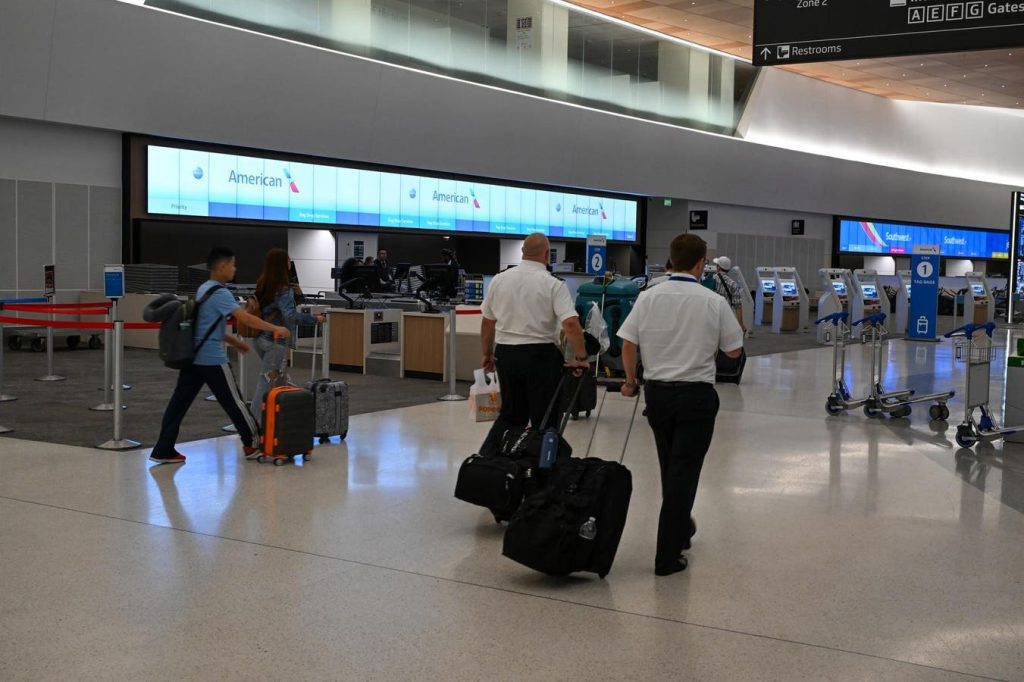Artificial intelligence is already transforming the travel industry, from the initial spark of inspiration to the final homeward journey. Travel and tourism is a colossal economic engine generating trillions annually. AI, in all its multifaceted forms, is the catalyst propelling this transformation. From the moment a traveler begins their search to the instant they reclaim their luggage, AI is redefining expectations.
A new generation of AI-powered chatbots is streamlining the booking process, handling everything from flight searches and hotel reservations to payment and baggage tracking. Moreover, the industry is embracing automation and robotics to optimize baggage handling and reduce delays. As technology advances, hyper-personalization will become the norm, tailoring every aspect of the travel experience to individual preferences and needs.
However, this digital revolution is being overlaid on a legacy infrastructure that is often outdated and fragile. Systems like the venerable Sabre booking platform and the recent, industry-wide disruption caused by the CrowdStrike Windows update highlight the vulnerabilities within the travel ecosystem. Such incidents, impacting airlines, hotels, banks, and support services, underscore the urgent need for a more robust and integrated technological foundation.
AI Is Transforming Every Aspect of the Travel Experience
Despite the challenges posed by legacy systems, the transformative power of AI is undeniable. The travel industry is undergoing a profound metamorphosis, and AI is at the forefront of this evolution. “AI” however has become the ubiquitous buzzword, promising to revolutionize every industry. While the term itself is broad, its applications within the travel sector are increasingly specific and impactful. Here are just a few examples of how AI is making inroads in various sectors of the travel landscape:
Personalized Travel Experiences: AI-driven recommendation engines are refining the art of personalized travel. Platforms such as Google Travel and TripAdvisor employ machine learning to curate itineraries aligned with individual preferences. Many startups are advancing this by introducing natural language processing to create more intuitive user interactions.
Predictive Analytics and Dynamic Pricing: AI-powered predictive analytics is targeting pricing and sales strategies. Hopper’s use of machine learning to forecast flight prices is a prime example. This technology also empowers airlines and hotels to dynamically adjust pricing based on demand, optimizing revenue.
Operational Efficiency and Sustainability: Beyond the consumer interface, AI is driving operational improvements and environmental responsibility. Google’s DeepMind team is helping airlines optimize flight paths using machine learning to dramatically reduce contrails which are a significant contributor to the greenhouse gas emissions of flights. Airlines, intercity rail and bus operators also using AI to optimize fuel and energy consumption and emissions, aligning with the burgeoning sustainable tourism market. Additionally, AI-powered image recognition is streamlining baggage handling, tracing which is a big leap in finding lost luggage quickly.
AI Travel Agent Hyper-personalization is the Future Customer Experience
The traditional travel agent’s role has been eroded by search engines. AI is poised to further redefine this function. AI agents can swiftly process complex travel requests, scour multiple platforms, and deliver optimized itineraries. However, the human element remains indispensable. My recent experience with a lost stroller in Athens underscored this. While AI accurately tracked the baggage, the chatbot sent me alerts on my phone, it was the human gate agent on our first leg that caused the initial error and it was the human at the receiving end that was crucial in resolving the issue. This highlights the complementary nature of AI and seasoned human expertise.
While stories about how AI will take jobs, the reality is that the roles will change as they did when the internet and smart phones, apps and mobile payments came on the scene. This new era is creating new roles such as AI Travel Specialists, AI Data Analysts, and AI Experience Designers. These professionals will be instrumental in developing, refining, and optimizing AI systems for the travel industry.
The future is going to get more personal, hyper-personal. By leveraging your data on loyalty programs, credit card benefits, and insurance coverage, AI agents will be able to craft highly tailored travel plans, negotiate on your behalf and even decide which card to use to book to maximize points. These intelligent assistants will anticipate your travel needs and predict how to proceed, from optimal flight and accommodation bookings to curated local experiences (maybe they can score the next Taylor Swift concert or Olympic Games tickets!). Their role will extend beyond the initial booking, ensuring seamless journeys and swift resolutions to unexpected challenges. Whatever helps take the stress out of planning travel especially with groups or families and brings in more joy when things go awry is not only part of the experience but well needed relief.
A Complex Interplay of Technological Advancement and Human Touch
While AI will undoubtedly drive automation and efficiency augmented with robotics and hyper-personalization, the industry must also prioritize human-centric service, the warm human touch that are the cornerstones of hospitality, especially in unfamiliar locales and with unexpected circumstances. Seamless integration of AI and human support will be crucial. Additionally, robust data security and privacy protocols are paramount to build trust with consumers. As AI continues to evolve, it’s essential to mitigate risks like hallucinations and ensure that AI systems align with ethical guidelines. Companies that address this delicate balance, offering reliable, personalized, and secure travel experiences, will be the ones who shape the industry and benefit from it. If we’re lucky traveling will get a little less complicated and a little more fun again.
Read the full article here





